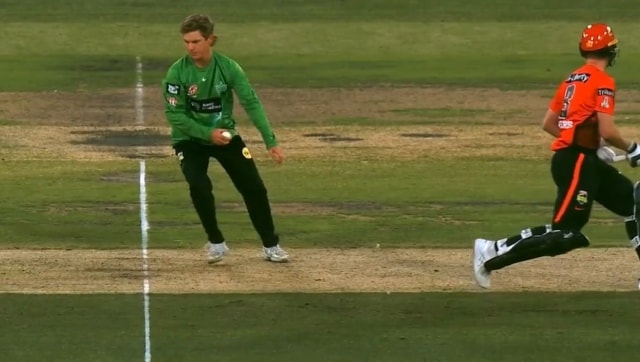What and why did MCC change law for run-out at non-striker’s end?

The protector of cricket laws Marylebone Cricket Club (MCC) made a change in the wording of Law 38 which directs rules around running out a batter at the non-striker’s end.
The run out at the non-striker’s end has picked up significant heat for quite a while as numerous instances have been witnessed wherein either the bowlers have run the batters out or given them a warning.
While a section of the cricketing fraternity has considered it against the spirit of the sport, the other half have said that it is rightful and within the laws of cricket. Amidst all these debates, the MCC have tried to make the wordings of the law easier so as to make sure controversies are reduced.
But what led to the controversy and what is the change that MCC made? We explain the matter below –
Which incident led to the controversy or a misunderstanding in the interpretation of the law?
The MCC was compelled to change the wording as a controversy erupted in recent weeks after Australia leg spinner Adam Zampa tried to run a batter out at the non-striker’s end in the ongoing BBL 2022-23.
Zampa, captain of the Melbourne Stars, tried to run Melbourne Renegades’ Tom Rogers out but the third umpire decided against him.
The third umpire ruled that Zampa’s arm had gone past the ‘vertical’ or the highest point – from where the ball is released – before he tried to dislodge the bails.
Although the law had been clear about such situations, it led to ambiguity after the third umpire’s decision.
What was the ambiguity in previous wordings of the law?
The most important ambiguity in previous wordings was the release point of the bowler and is a run-out valid if the batter at the non-striker’s end leaves the crease before the bowler delivers but after he has passed his release point.
“The current wording led some to think that if the non-striker left his/her ground before the expected moment of release, then the Run out could happen at any moment, even after the bowler had gone through the bowling action. That was never the intention of this Law, nor the way it was ever interpreted by MCC,” the MCC statement clarified.
Zampa, while attempting the run out had already gone past his usual bowling action and the highest vertical point of release. Hence, the third umpire had ruled in favour of the batter.
What were the earlier wordings of the law?
Law 38.3.1 If the non-striker is out of his/her ground at any time from the moment the ball comes into play until the instant when the bowler would normally have been expected to release the ball, the non-striker is liable to be Run out. In these circumstances, the non-striker will be out Run-out if he/she is out of his/her ground when his/her wicket is put down by the bowler throwing the ball at the stumps or by the bowler’s hand holding the ball, whether or not the ball is subsequently delivered.
What are the wordings of the new law?
38.3.1 At any time from the moment the ball comes into play until the instant when the bowler would normally have been expected to release the ball, the non-striker is liable to be Run out if he/she is out of his/her ground. In these circumstances, the non-striker will be out Run out if he/she is out of his/her ground when his/her wicket is put down by the bowler throwing the ball at the stumps or by the bowler’s hand holding the ball, whether or not the ball is subsequently delivered.
38.3.1.1 The instant, when the bowler would normally have been expected to release the ball, is defined as the moment the bowler’s arm reaches the highest point of his/her normal bowling action in the delivery swing.
38.3.1.2 Even if the non-striker had left his/her ground before the instant at which the bowler would normally have been expected to release the ball, once the bowler has reached that point it is no longer possible for the bowler to run out the non-striker under this Law.
MCC has today issued a clarification on Law 38.3 concerning the act of non-strikers leaving their ground early.#MCCLaws | #CricketTwitter
— Marylebone Cricket Club (@MCCOfficial) January 19, 2023
From when will the change in law be enforceable?
The MCC clarified that the new wordings of the law are merely for clarity and not a material change in the law. Hence, it shall be immediately effective from 19 January 2023.
It is important to note that this does not change the way the Law should be interpreted – it has been interpreted that way for the past six years, without much misunderstanding. However, the intention is that this will make things clearer, the MCC statement read.
This becomes Law immediately and is in effect from January 19, 2023. Because this is not a material change to the meaning of the Law, MCC will not be re-printing Law books, but the change has already been reflected in all online materials, the statement further clarified.
Read all the Latest News, Trending News, Cricket News, Bollywood News, India News and Entertainment News here. Follow us on Facebook, Twitter and Instagram.
For all the latest Sports News Click Here

